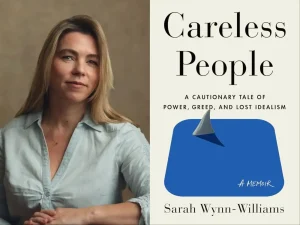Yitshak Kreiss, the CEO of Israel’s largest medical centre, wants to change how his hospital operates.
“Our job is not just to cure, we have to prevent (illness). And before we prevent, we have to predict,” Kreiss, a professor at Hebrew University Hadassah Medical School, a specialist in internal medicine and the head of the Chaim Sheba Medical Center at Tel Hashomer, explained while on a recent visit to Toronto.
He believes those working at Toronto’s Sunnybrook Health Sciences Centre have the same desire for innovation as his colleagues at Sheba, a 2,000-bed campus that treats roughly 1.5 million people each year.
Kreiss was in town on Nov. 20, to help kick off a new partnership between the two hospitals, the stated goal of which is to advance research, medical innovation and patient care in both Canada and Israel. The partnership will formalize a long-running fellowship exchange program between the two hospitals, which has seen many Israeli doctors come to Canada to do their fellowships.
The hospitals also plan to make mutual investments in research grants and allocate funds for shared projects.
“We share the same values of medicine,” Kreiss said, noting that both hospitals understand the need to prepare for the challenges hospitals will face in the future, in areas such as oncology and cardiology.
READ: ISRAELI TEAM TRAINS TORONTO’S SICK KIDS HOSPITAL ON DISASTER PREPAREDNESS
For example, he said that the rate in the increase of cancer diagnoses is already three times that of population growth. Because people are living longer, and increasingly experiencing cancer as a chronic – rather than a terminal – disease, the medications and new treatment modalities needed to sustain them will be extremely costly.
“We’ll have to be more precise in diagnosis … because if you give a medication, but you had an improper diagnosis, it’s a waste,” Kreiss said.
Kreiss said that strokes are also expected to be “a big disease of the future, because people will live longer.”
The cardiology divisions at both Sheba and Sunnybrook are interested in coming up with innovative ways for diagnosing and treating the condition, so that it can be done faster and more effectively.
The partnership leverages an existing relationship between Amit Segev, director of cardiology at Sheba, and Bradley Strauss, Sunnybrook’s head of cardiology. The two met in 2002, when Segev did a fellowship in interventional cardiology at St. Michael’s Hospital in Toronto and Strauss, then director of that division, was his mentor. A research project they initiated to treat blocked arteries is ongoing today – the two have since opened a Toronto-based company – and Segev, who was also in Toronto to promote the partnership, refers to Strauss as “family.”
Established in 1948 as Israel’s first military hospital, the Sheba campus includes an acute care hospital, rehabilitation hospital, women’s hospital, children’s hospital, eating disorder clinic, PTSD clinic for soldiers, laboratory division, outpatient division and academic campus.
‘Sheba grew up with Israel.’
“Sheba grew up with Israel,” Kreiss said, “it aspires for international, not just national, impact, and is very much focused on cutting-edge technology and research.”
“You know what chutzpah is?” he asked. “I have 8,000 workers at the hospital, all with crazy ideas. They believe they can change the future of medicine. We call it ‘chutzpah innovation.’ ”
The partnership event was held at the Estates of Sunnybrook and attended by health professionals, donors and industry representatives. The evening featured presentations on the strategic and academic opportunities that the collaboration will facilitate, and an official signing of a memorandum of understanding between the two hospitals.







